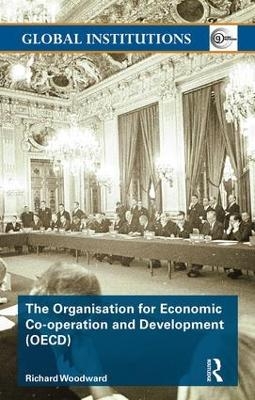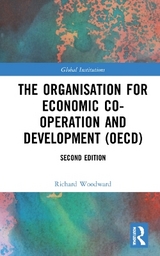
The Organisation for Economic Co-operation and Development (OECD)
Seiten
2009
Routledge (Verlag)
978-0-415-37198-8 (ISBN)
Routledge (Verlag)
978-0-415-37198-8 (ISBN)
Zu diesem Artikel existiert eine Nachauflage
A much-needed accessible introduction to the Organization for Economic Co-operation and Development (OECD), a crucial, though often neglected, institution.
The Organisation for Economic Co-operation and Development (OECD) is one of the least written about and least understood of our major global institutions. This new book builds a well-rounded understanding of this crucial, though often neglected, institution, with a range of clearly written chapters that:
outline its origins and evolution, bringing its story fully up-to-date
present a clear framework for understanding the OECD
set the institution within the broader context of global governance
outline key criticisms and debates
evaluate its future prospects.
Given the immense challenges facing humanity at the start of the 21st century, the need for the OECD as a venue where the world’s leading states can discuss, on an informal and ongoing basis, the conundrums of globalization has never been greater. The clarity and rigour of these chapters cut through the layers of misunderstanding and misconception that surround the OECD, often dismissed as a ‘rich-man’s club’, ‘a think-tank’ and ‘a consultative forum’. This new book dismantles these labels to provide a holistic understanding of the organization.
This concise and accessible introduction is essential reading for all students of international relations, politics and world history and affairs.
The Organisation for Economic Co-operation and Development (OECD) is one of the least written about and least understood of our major global institutions. This new book builds a well-rounded understanding of this crucial, though often neglected, institution, with a range of clearly written chapters that:
outline its origins and evolution, bringing its story fully up-to-date
present a clear framework for understanding the OECD
set the institution within the broader context of global governance
outline key criticisms and debates
evaluate its future prospects.
Given the immense challenges facing humanity at the start of the 21st century, the need for the OECD as a venue where the world’s leading states can discuss, on an informal and ongoing basis, the conundrums of globalization has never been greater. The clarity and rigour of these chapters cut through the layers of misunderstanding and misconception that surround the OECD, often dismissed as a ‘rich-man’s club’, ‘a think-tank’ and ‘a consultative forum’. This new book dismantles these labels to provide a holistic understanding of the organization.
This concise and accessible introduction is essential reading for all students of international relations, politics and world history and affairs.
Richard Woodward is a Lecturer in political economy in the Department of Politics, University of Hull, UK.
Introduction 1. Origin and Evolution 2. Organization and Functioning 3. A Framework for Understanding 4. Current Issues 5. OECD Reform 6. The Future of the OECD
| Erscheint lt. Verlag | 30.4.2009 |
|---|---|
| Reihe/Serie | Global Institutions |
| Zusatzinfo | 13 Tables, black and white; 3 Illustrations, black and white |
| Verlagsort | London |
| Sprache | englisch |
| Maße | 138 x 216 mm |
| Gewicht | 330 g |
| Themenwelt | Sozialwissenschaften ► Politik / Verwaltung ► Europäische / Internationale Politik |
| Wirtschaft ► Volkswirtschaftslehre ► Wirtschaftspolitik | |
| ISBN-10 | 0-415-37198-8 / 0415371988 |
| ISBN-13 | 978-0-415-37198-8 / 9780415371988 |
| Zustand | Neuware |
| Haben Sie eine Frage zum Produkt? |
Mehr entdecken
aus dem Bereich
aus dem Bereich
Studienbuch
Buch | Hardcover (2023)
De Gruyter Oldenbourg (Verlag)
44,95 €
erfolgreiche Interessenvertretung durch Prozesskompetenz im komplexen …
Buch | Hardcover (2023)
Wiley-VCH (Verlag)
42,00 €



